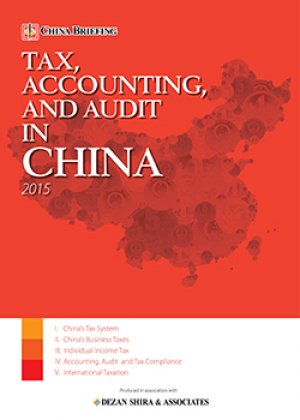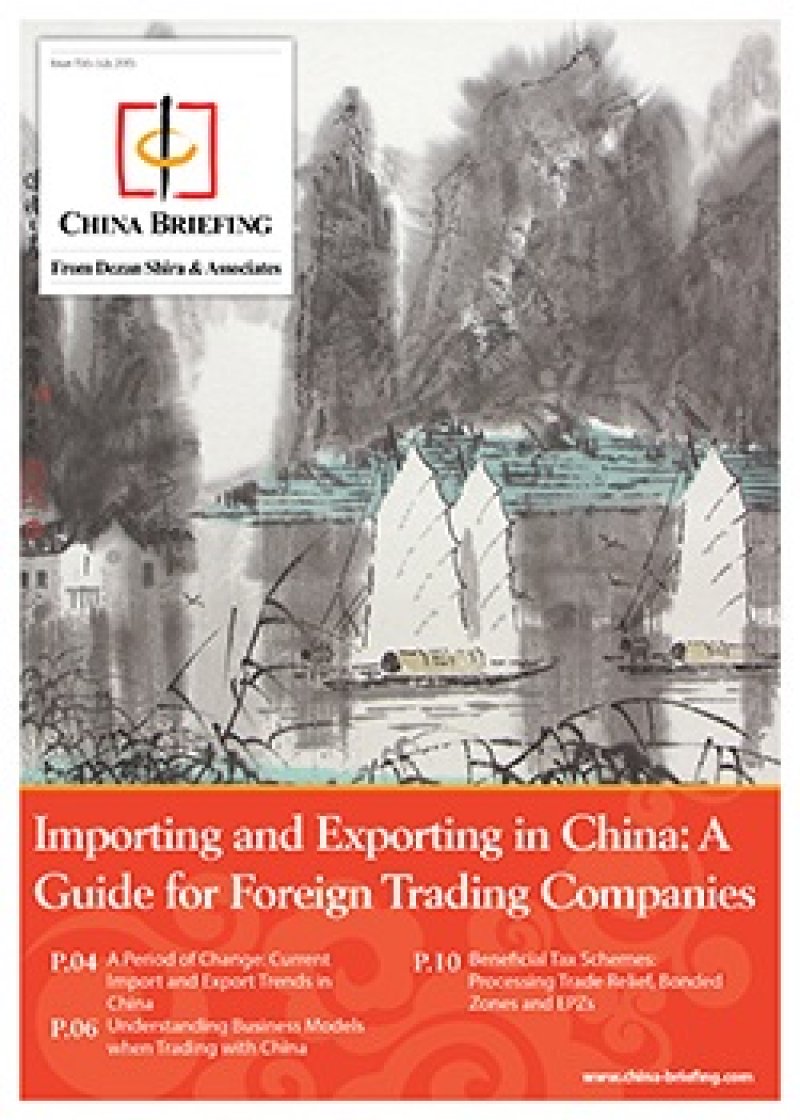China Regulatory Brief: FTA between China and South Korea and China’s Revised Draft Patent Law
South Korea Ratifies Free Trade Agreement with China
On November 30, South Korea’s National Assembly ratified its free trade agreements (FTA) with China, New Zealand and Vietnam. The agreement with China had been signed in June earlier this year, and could come into effect as early as the end of this year subject to China’s pending authorization.
The terms of agreement reached include the elimination of import tariffs on over 85 percent of annual trade and 90 percent of all products traded between the two countries within 20 years after implementation. This FTA has been labelled as unique and unprecedented, primarily due to its scale in trade liberalization and market opening for China compared to any others previously, becoming the country’s largest FTA deal in terms of trade volume. It is also the first time China has included financial, telecommunications and ecommerce industries in an FTA.
South Korea is China’s third largest trading partner, and total trade value between them is set to reach US$300 billion this year.
China to Revise its Patent Law
On December 2, China’s State Council released the “Draft Revision of the Patent Law of the People’s Republic of China,” which is currently open to public comments until January 1, 2016. According to the Draft, the valid term of the patents on inventions is 20 years, 10 years for utility models and 15 years for appearance design, starting from the date of application. The Draft also clarifies that anyone who provides products, including raw materials, intermediates, parts and equipment to infringers, are jointly liable if they knew about the infringement.
 RELATED: Tax and Compliance Services from Dezan Shira & Associates
RELATED: Tax and Compliance Services from Dezan Shira & Associates
New Streamlined Record-Filing System for Enjoying Preferential CIT Policies
On November 26, the State Administration of Taxation announced its decision to abolish the preliminary approval system for preferential CIT policies, meaning that enterprises are no longer required to apply to the local tax bureau before they obtain the preferential tax benefits. Instead, the SAT launched a new “afterwards filing system” for the administration of preferential CIT policies and the “Catalogue for Administration of Filing of Preferential CIT Policies,” which clarifies filing procedure such as the filing period and the required documents. Taxpayers may decide whether they are qualified for the tax incentives on their own and complete the record-filing procedure. The local tax bureau will then check and examine the company’s tax status based on the submitted documents at the end of each year.
IMF to Include Chinese RMB in the SDR Basket
Starting October 1, 2016, the RMB will be part of the IMF’s basket of currencies for the Special Drawing Right (SDR) as the fifth currency – after the US Dollar, euro, British pound, and Japanese yen. The new weighting of the SDR basket will be composed as: US Dollar (41.7 percent), Euro (30.9 percent), British pound (8.1 percent), Japanese yen (8.3 percent) and Chinese RMB (10.9 percent). This is the first time in over 15 years that the list of currencies comprising the SDR has been altered, and also the first time for the Chinese RMB to be included. This move is expected to help the Chinese RMB be adopted by more central banks and trading partners as a reserve currency, and thus promote the international use of China’s local currency. The SDR is an international reserve asset created by the IMF in 1969 to supplement its member countries’ official reserves.
Tianjin Issues New Measures for Work Permits
On November 30, the General Office of the People’s Government of Tianjin issued the Measures for Administration of Foreigners Working in Tianjin. The measures state that an employer must obtain a foreign workers work permit and residence permit for foreign workers arriving in Tianjin. In advance of their arrival, an employer is also obliged to make an online application for approval, and to take relevant documentation to the Human Resources Bureau services counter to apply for a foreign work permit. Once the application has been approved, documentation is to be taken to the relevant foreign affairs department in Tianjin with a company invitation letter in order to process a formal invitation document. The application materials are then given to the foreign worker who is to personally apply at a Chinese embassy or consulate for a Work (Z) or Specialist (R) Visa.
|
Asia Briefing Ltd. is a subsidiary of Dezan Shira & Associates. Dezan Shira is a specialist foreign direct investment practice, providing corporate establishment, business advisory, tax advisory and compliance, accounting, payroll, due diligence and financial review services to multinationals investing in China, Hong Kong, India, Vietnam, Singapore and the rest of ASEAN. For further information, please email china@dezshira.com or visit www.dezshira.com. Stay up to date with the latest business and investment trends in Asia by subscribing to our complimentary update service featuring news, commentary and regulatory insight. |
![]()
 Tax, Accounting, and Audit in China 2015
Tax, Accounting, and Audit in China 2015
This edition of Tax, Accounting, and Audit in China, updated for 2015, offers a comprehensive overview of the major taxes foreign investors are likely to encounter when establishing or operating a business in China, as well as other tax-relevant obligations. This concise, detailed, yet pragmatic guide is ideal for CFOs, compliance officers and heads of accounting who must navigate the complex tax and accounting landscape in China in order to effectively manage and strategically plan their China operations.
Using China’s Free Trade & Double Tax Agreements
In this issue of China Briefing, we examine the role of Free Trade Agreements and the various regional blocs that China is either a member of or considering becoming so, as well as how these can be of significance to your China business. We also examine the role of Double Tax Treaties, provide a list of active agreements, and explain how to obtain the tax minimization benefits on offer.
Importing and Exporting in China: a Guide for Trading Companies
In this issue of China Briefing, we discuss the latest import and export trends in China, and analyze the ways in which a foreign company in China can properly prepare for the import/export process. With import taxes and duties adding a significant cost burden, we explain how this system works in China, and highlight some of the tax incentives that the Chinese government has put in place to help stimulate trade.
- Previous Article Intellectual Property Rights for SMEs in China’s ICT Industry
- Next Article Die Verlängerung von Arbeitsverträgen in China: Rechtliche Verpflichtungen und Risikomanagement












